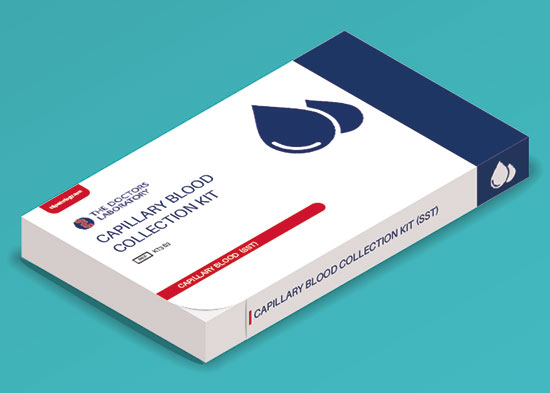A thyroid function blood test is a panel of tests used to assess the health and function of the thyroid gland, which plays a critical role in regulating metabolism, growth, and energy levels. Here are the key components typically included in a thyroid function panel:
Blood Test Cost – £109
1. Thyroid-Stimulating Hormone (TSH)
- Purpose: TSH is produced by the pituitary gland and stimulates the thyroid gland to produce thyroid hormones (T4 and T3). It is the most sensitive indicator of thyroid function.
- Interpretation: Elevated TSH levels usually indicate an underactive thyroid (hypothyroidism), while low TSH levels suggest an overactive thyroid (hyperthyroidism).
- Normal Range: Typically between 0.4 and 4.0 mIU/L, although this can vary slightly between laboratories.
2. Free Thyroxine (Free T4)
- Purpose: Free T4 is the active form of thyroxine, the main thyroid hormone that regulates metabolism. It helps diagnose thyroid disorders and monitor treatment effectiveness.
- Interpretation: Normal range is generally between 0.8 and 1.8 ng/dL.
3. Total Thyroxine (Total T4)
- Purpose: Total T4 includes both free and protein-bound forms of thyroxine. It provides additional information about thyroid function.
- Interpretation: Normal range is approximately 4.5 to 12.5 µg/dL.
4. Free Triiodothyronine (Free T3)
- Purpose: Free T3 is the active form of triiodothyronine, another thyroid hormone that plays a role in regulating metabolism and energy levels.
- Interpretation: Normal range is generally between 2.3 and 4.2 pg/mL.
When to Consider a Thyroid Function Test:
- Symptoms: Testing is recommended if you experience symptoms such as unexplained weight changes, fatigue, hair loss, dry skin, constipation, or menstrual irregularities.
- Risk Factors: Individuals with a family history of thyroid disorders, autoimmune diseases (e.g., Hashimoto’s thyroiditis, Graves’ disease), or past radiation therapy to the head or neck may benefit from regular thyroid screening.
- Routine Screening: Many healthcare providers include thyroid function tests as part of routine health check-ups, especially for women over 35 years old.
Preparation for the Test:
- Fasting: Generally, fasting is not required for thyroid function tests. However, follow any specific instructions provided by your healthcare provider.
- Medications: Inform your healthcare provider about any medications or supplements you are taking, as certain medications (e.g., thyroid hormones, antithyroid medications) can affect test results.
Follow-Up and Management:
- Treatment: Depending on the diagnosis, treatment may involve thyroid hormone replacement therapy for hypothyroidism, antithyroid medications, radioactive iodine therapy, or surgical intervention for hyperthyroidism.
- Monitoring: Regular monitoring and follow-up with your healthcare provider are essential to adjust treatment as needed and ensure thyroid function remains within a healthy range.
Conclusion:
Thyroid function blood tests are valuable tools for diagnosing thyroid disorders and guiding appropriate treatment. Discussing your symptoms and health history with a healthcare provider helps determine if a thyroid function test is necessary and ensures accurate interpretation of results for optimal management of thyroid health.
Results – 4hrs from Laboratory receiving sample
To Book with our Phlebotomist please click the calendar below and find a suitable time for your appointment
Thyroid Function – Self Test Kit
Our test at home kit for Thyroid Function. A capillary blood sample collection kit used…







